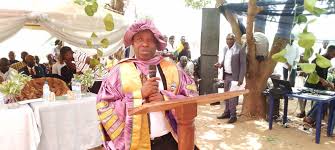A call has been made for the inclusion, appointment and deployment of more professionals into the nation’s productive sectors, especially government ministries, agencies and parastatals to fuel healthier development and enhance national growth at every level.
Head of the department of Public Administration at the University of Abuja, Associate Professor Oyadiran Phillip Adeyinka, who is also the president, Institute of Human Capital and Skills Development of Nigeria (IHCM), made the call in an exclusive interview in Abuja.
Adeyinka, who also gave a down-to-earth approach to “organisational change management” in the recent first quarter conference, induction and training of the institute held in Abuja, frowned at the situation where “square pegs are used to fill round holes” in political appointments in the country.
While regretting that the ruling elite has given so much emphasis on appointments as rewards for party loyalty at the expense of merit Adeyinka stated that the nation had suffered so much from using appointments for political patronage.
“Nigeria’s human capital has not been properly utilised and this has led to pressures and brain-drain. We have good doctors, engineers and even within the academic circles, there are good brains, but these people are not being utilised or given the opportunity to serve the country or being brought to limelight in any way.
“We cannot just be counting the numbers of educated and qualified people that Nigeria has produced. We should start putting them especially the professionals to proper use,” Adeyinka said.
At the conference, the don delivered a keynote address on the theme: “Human Capital Management as the Fulcrum of Organisational Change.”
The conference lecture was delivered by Dr. Charles Nwekeaku of the department of Public Administration, Faculty of Administration, Nasarawa State University, Keffi, who defined change as a constant phenomenon and unavoidable for any human organisation because of the dynamic nature of the society.
In effect, any organisation that wants to remain in business must have a strategic process of equipping the workforce with new strategies, methods, approaches, skills and experiences.
“This task calls for constant review of policies, programmes and strategies for staff training and development to ensure the readiness of the human capital to contain the challenges of change,” the guest lecturer said.
Dr Charles also stated that human capital requires constant training and manpower development in order to possess the necessary skills, strategies, approaches, methods, talent, experiences and other elements vital to organisational change.
He therefore, warned that the malfunctioning of any aspect of the human capital may lead to system collapse and eventual folding up of an organization, saying that in the case of Nigeria, the level of human capital development was still very low.
In a communique at the end of the programme, the Institute of Human Capital and Skill Development appealed that budgetary allocations to the education sector should be increased to 26 per cent as stipulated by UNESCO.
“This will go a long way in encouraging increase in research grants to undergraduate and postgraduate students in institutions of higher learning.”
The institute also called for legalisation aimed at encouraging synergy between institutions of higher learning and private companies as this will go a long way in making the product of research available for mass production and sale to the general public.
The institute called for amicable solution to the perennial problems bedevilling the power and steel industry in Nigeria saying this will go a long way in reviving most companies that have folded up due to lack adequate power supply.
“Nigerians must change their attitude by patronising home-made goods in place of foreign products. This will go a long way in encouraging high productivity; improved exchange rate regime and high standard of living for average citizens.
“Government should discontinue the use of expatriates for the execution of capital projects in order to discourage capital flight and encourage the development of local consulting firms,” the communiqué concluded.



